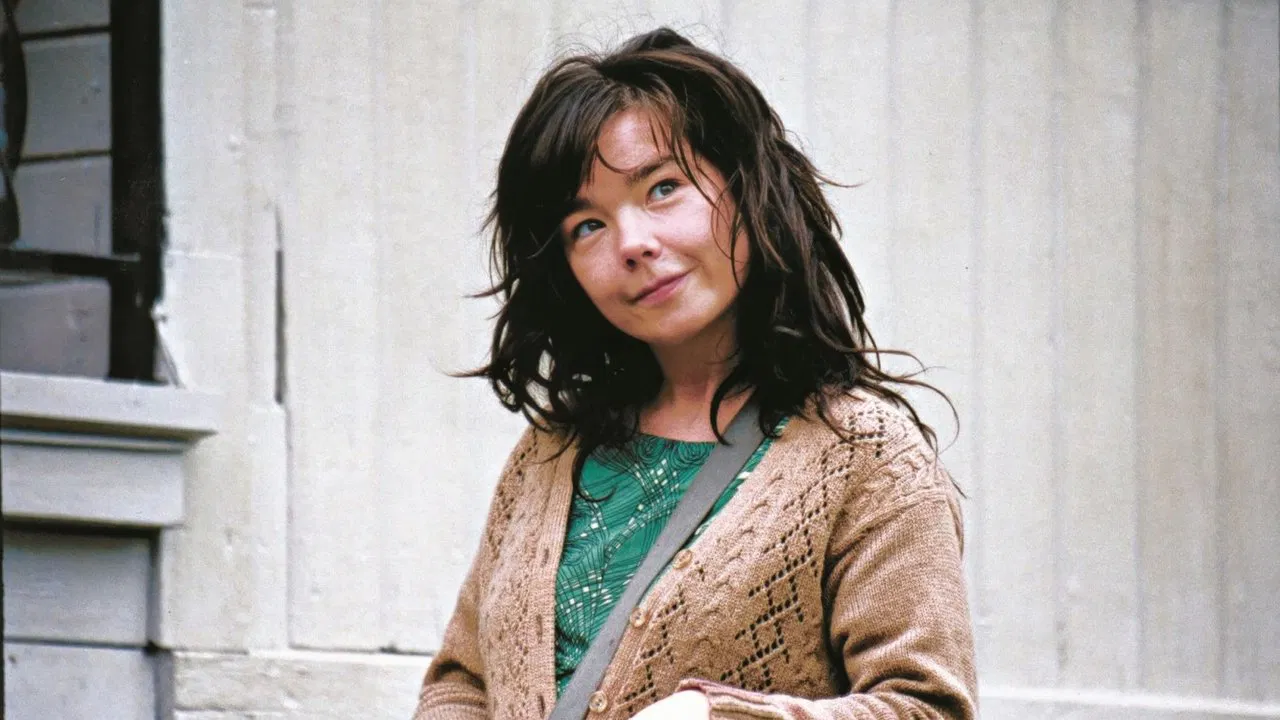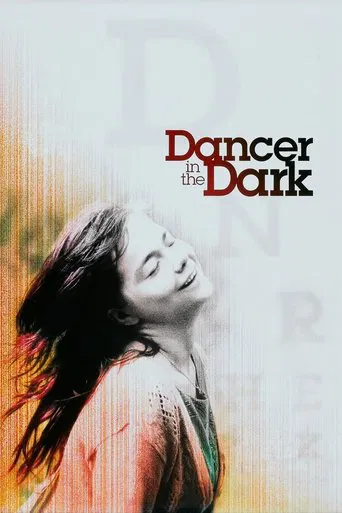

Ah yes, Dancer in the Dark. I was so thrilled to watch this movie years ago. Hearing so many wonderful things about it, how it's a sad yet beautiful tour de force that will make you shed a few tears, and the fact that the unconventional Von Trier was the mastermind behind the film, I was very excited to watch this. Well, enthusiasm turned to indignation about an hour in. It reminded me of that one friend at house parties would put on Tom Waits to put everyone in a bad mood. The room would get quiet and bleak and my friend would bust out laughing. It was pretty funny, but for Lars to make an adult musical and attempt to make it a visceral tragedy is in poor taste (even for Von Trier). I can't get emotional over a movie's that's completely insincere. The musical-in-the-mind sub-theme of the movie was beautiful. Bjork is a unique personality and a very talented singer and she really shines in the movie and it was cool to see some of her 'headspace' portrayed on screen. The nihilism in the movie, however, was just an overreach in Lars' attempt to get people to shed tears. Kind of tasteless. I was shocked with how much I disliked it after I was blown away by Melancholia: a Von Trier film that I encourage any 'film geek' to check out.
... View MoreThis is my favorite movie from the brilliant director Lars von Trier. I did not only watch the movie with my eyes, I felt it in every corner of my heart. It was so powerful, that every time I think of the movie, I remember the feelings I had when I first watched it. It is one of those rare movies that will follow you through your entire life. And I appreciate this.
... View MoreThe hugest movie picture that I've ever seen. A total immersive brand experience with a dramatic spirit able to destroys your soul. I think it represents Lars Von Trier's biggest work; here he proved a big sensitive artistic talent, with bravery and strength. A movie like "Dancer in the Dark" is a result that only a visionary artistic genius could obtains. It shows clearly a passionate talent. Owerflowing with hugeness.The plot is unique; a story packed with an excellent tragedy screenplay. The soundtrack is simply majestic and the musical performance are moving and breathtaking, with a perfect performer as the singer Björk. She, the main character Selma Jezkova, is a incredible woman with an incredible soul, which keeps at high levels the movie's atmosphere.
... View MoreThe film fades from black and opens like eyesight coming into focus for the first time. As fine art continues to fade in and out, a motif evocative of bursted capillaries takes over. This is Dancer in the Dark, a film by Lars Von Trier about Selma, a foreign immigrant woman in 1960s Washington State who loves movie musicals but is slowly going blind. The film is a musical itself, but a very unconventional one. It's not the glamorous romp that Selma sees on the big screen. Instead, it's a rough around the edges look at escapism and perceived Americana that showcases the contrast of how we use sight, sound and imagination to get through our everyday lives.Most of the movie looks more like a documentary, very much like real life. It's so unpolished that it seems like improv, like everything is being made up on the fly or that the camera is just capturing these real, personal events. Of course as the story continues you know that everything is indeed planned and once you get to the first musical number, which doesn't happen until nearly 40 minutes in, everything is actually specifically choreographed. While these real life moments were filmed with what seems to be a single hand-held camera, the musical moments become dreamlike and are shot with over 100 digital cameras placed around the location to catch every move from every angle. This footage was then edited to give a sense of stability within Selma's mind, standing out from her otherwise rocky life. It's quite ingenious.The cast is filled with actors' actors that each bring truth to their characters no matter how big or small the role is. Veteran actress Catherine Denueve is abrasive but supportive as Selma's friend and coworker, Peter Stormare is sympathetic as a man after Selma's affection and David Morse really pushes the film to new points as Selma's neighbor and landlord. Cara Seymour, Siobhan Fallon, Udo Kier, Stellan Skarsgård, Vladica Kostic and Joel Grey are all also in smaller roles, though still as equally important to the film. Icelandic singer Björk, who has a limited experience with acting, stars as Selma herself and brings veracity, sincerity and an incredibly raw experience to the character.Selma struggles between being a woman of her word, holding her ground and simultaneously feeling helpless. She's dealing with her own personal burdens, being a single mother trying to give her son a future he can see, and the burdens given to her by others, being a friend in a position where she doesn't have much of a choice to make. Many might question why Selma doesn't take the easy road through her situation, but that's just the point. She is so innocent and her moral convictions are so strong that she never even feels the need to. It might seem like an unrealistic decision to make, but it's only as unrealistic as any other movie musical, just in the opposite direction.Dancer in the Dark completes Von Trier's Golden Hearts Trilogy of films in which the heroine remains naive despite her experiences. It should also be noted that the Danish director's view of vintage America is a view from afar as the director has very rarely if ever even been to America and the film was shot in Denmark. The portrayal here of small town American living and the American justice system are skewed and exaggerated, a bit simple but still unsurprising. It's a heartbreaking and unsettling film that you will assuredly not clap for at the end, as you might a usual musical, despite whether you appreciate it or not.
... View More